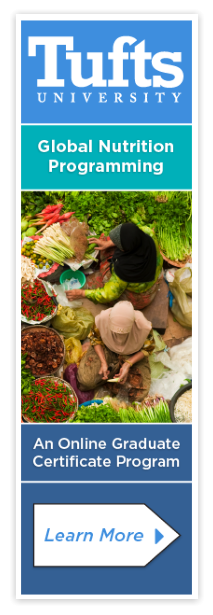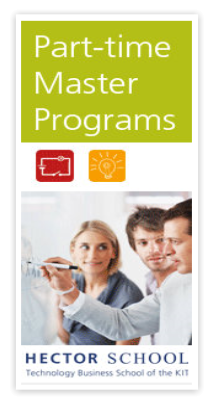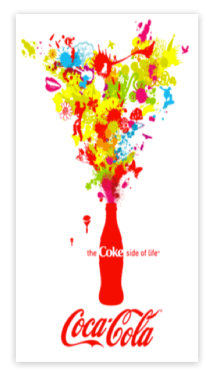Study in English, French, German or Italian
Private Educational Institutions in Switzerland predominantly teach in English. Some educational programs are also taught in one of the country’s main official languages (German, French or Italian). The schools running the private educational market in Switzerland include some of the most famous and oldest in the country. Great efforts are made to maintain the quality standards of the schools which attach their names to the traditional Swiss quality brand. In Switzerland about 200,000 pupils, students, and apprentices, from a wide variety of regions within the country and from over 100 other countries are educated in private schools. The private schools & universities of Switzerland offer a wide variety of different courses. Ranging from language studies, hospitality, and hotel management programs, to Commercial management courses for BBA, MBA, Executive MBA and DBA degrees. Study fees are notably higher than public schools, and the academic entry prerequisites can vary greatly from institution to institution. Meaning that it is up to the student to investigate which school they wish to attend. By definition, private schools & universities are totally independent of the Swiss government. Verification of their educational standards is usually conducted by various external accreditation bodies and not the Swiss government. However, degrees from distinguished private schools & universities hold a lot of weight in international industries. As seen in the hotel industry, Switzerland has a long-standing tradition, forming a high percentage of the world’s top hotel managers. The most prestigious of these schools have been operating for over 100 years, their exemplary standards and already well established reputations gain them recognition and respect among the world’s leading hotel groups. Although the expected level of command of English may vary depending on the school and, above all, the study program or course, the usual average English language requirement you will be required to have to study in Europe is 550 points (paper-based TOEFL test), or 213 points (computer-based TOEFL test), or 79-80 points (internet-based TOEFL test), or 5.5 - 6.5 score in the IELTS test. If you have not taken either the TOEFL or IELTS tests and you would like to prove your level of knowledge of English with other exams, you will need to prove you have a level of command of English corresponding to the B1/B2 level (intermediate).









The
SIEPS
Educational
Database
includes
some
of
the
most
significant,
internationally
recognised and oldest private international schools and universities in Switzerland.
Their
excellence
is
guaranteed
by
the
various
accreditation
levels
and
quality
labels
they
have earned.
SIEPS
helps
students,
parents,
schools
and
universities
come
closer
together
by
providing
an Educational Database comprised of:
•
A
quality
oriented
list
of
some
of
the
oldest
and
most
prestigious
private
schools
and
universities in Switzerland
•
Including their respective educational programs offered
•
A complete list of accreditation agencies
•
An exhaustive list of affiliation bodies
•
A list of degrees and what they mean to you
Accreditation
is
a
type
of
voluntary
quality
assurance
process
under
which
educational
programs
are
evaluated
by
an
external
non-governmental
body
to
determine
if
applicable
standards are met. If this is the case, the agency grants an accredited status.
Accreditation
is
not
permanent.
It
must
be
maintained.
A
school
has
to
demonstrate
during
a
regular
review
process
that
it
has
developed
and
grown,
not
just
maintained
the
status quo.
Accreditation
also
permits
an
evaluation
on
an
international
level
regarding
recognition
or
equivalency of the degree you receive.
Bachelor
of
Business
Administration
(BBA)?,
Master
of
Business
Administration
(MBA)?,
Executive
MBA
(EMBA)?,
Master
in
International
Business
(MIB)?
Master
in
International
Diplomacy?
Which
educational
program
is
best
for
me?
What
is
the
difference?
How
can
I
quickly
compare
educational
programs
offered
by
private
schools
and
universities
in
Switzerland?
Even
better,
how
can
I
print
out
a
list
of
private
schools
and
universities
in
Switzerland
that
match my specific requirements?
The
degrees
offered
by
schools
and
universities
the
world
over
may
be
the
same
but
not
all
educational
approaches
to
obtain
that
degree
are
the
same!
Each
private
school
or
university
in
Switzerland
offers
their
specific
tailored
made
approach
to
education.
This
approach
is
expressed
in
the
way
they
adapt
their
educational
curriculum
in
order
to
meet
their own respective standards of excellence.
An
academic
degree
is
a
college
or
university
diploma,
often
associated
with
a
title
and
sometimes
associated
with
an
academic
position,
which
is
usually
awarded
in
recognition
of
the
recipient
having
either
satisfactorily
completed
a
prescribed
course
of
study
or
having
conducted
a
scholarly
endeavour
deemed
worthy
of
his
or
her
admission
to
the
degree.
Understanding
what
degree
is
right
for
you
can
be
a
daunting
task!
To
this
effect
SIEPS
has
made
available
an
exhaustive
list
of
degrees
offered
by
private
schools
and
universities in Switzerland. Browse and learn!
An affiliation is not an accreditation process, but merely an association with another entity.
The
main
advantage
of
affiliation
bodies
is
that
they
often
incorporate
an
international
network
of
partners,
associates,
business
networks
and
professionals
in
various
industries
and
therefore
offer
interesting
opportunities
for
students
to
enter
the
“real
world”
and
the
international job market through their affiliates worldwide.
Affiliation
bodies
can
also
include
a
select
and
alumni
group
of
dedicated
professionals
or researchers that have affiliates in your area of interest for further study application.
International Schools
An international school is a school that promotes international education, in an international environment, either by adopting a curriculum such as that of the International Baccalaureate, Edexcel or Cambridge International Examinations, or by following a national curriculum different from that of the school's country of residence. Many career driven parents consider international schools for their children to help ease the transition between institutions when moving country. Others parents wish simply to install in their children a strong sense and understanding on globality from an early age. Studies have shown bi- and multilingual studies increase a child’s mental flexibility and overall play a positive role in their academic success. Not to mention the necessity of a second, or even third language in today’s competitive global arena. Most Swiss children go to state (public) schools. However, there are also more than 20 bi- or multilingual international schools in Switzerland, some of them private, some under federal control. Most of them offer the International Baccalaureate plus several other programs leading to country- specific university entrance qualifications. As of January 2015, the International Schools Consultancy (ISC) listed Switzerland as having 105 international schools. ISC defines an 'international school' in the following terms: "ISC includes an international school if the school delivers a curriculum to any combination of pre-school, primary or secondary students, wholly or partly in English outside an English-speaking country, or if a school in a country where English is one of the official languages, offers an English-medium curriculum other than the country’s national curriculum and is international in its orientation." This definition is used by publications including The Economist.International Business Schools
An International Business School is a university-level institution that confers degrees in business administration or management. Such a school can also be known as school of management, school of business, school of business administration, or, colloquially, b- school or biz school. An International Business School teaches topics such as accounting, administration, strategy, economics, entrepreneurship, finance, human resource management, information systems, international business, logistics, marketing, organizational psychology, organizational behavior, public relations, research methods and real estate among others. In addition to teaching students, many International Business Schools run Executive Education programs. These may be either open programs or company-specific programs. Executives may also acquire a MBA title in an Executive MBA program within an International Business School. Many International Business Schools seek close co- operation with companies. There are 3 main accreditation agencies for International Business Schools in the United States. ACBSP, AACSB, and the IACBE. In Europe, the EQUIS accreditation system is run by the EFMD - The Management Development Network.International Hotel Management Schools
Hospitality management is the study of the hospitality industry. A degree in the subject may be awarded either by a university college dedicated to the studies of hospitality management or a business school with a relevant department. Degrees in hospitality management may also be referred to as hotel management, hotel and tourism management, or hotel administration. Degrees conferred in this academic field include BA, Bachelor of Business Administration, BS, BASc, MS, MBA, and PhD. Hospitality management covers hotels, restaurants, cruise ships, amusement parks, destination marketing organizations, convention centers, and country clubs. In Switzerland, hospitality and tourism management curricula follow similar core subject applications to that of a business degree, but with a focus on hospitality management. Core subject areas include accounting, administration, finance, information systems, marketing, human resource management, public relations, strategy, quantitative methods, and sectoral studies in the various areas of hospitality business.International Boarding Schools
A boarding school is a school at which most or all of the students live during the part of the year that they go to lessons. The word 'boarding' is used in the sense of "bed and board," i.e., lodging and meals. Some boarding schools also have day students who attend the institution by day and return to their families in the evenings. Many independent (private) schools are boarding schools. Boarding school pupils (a.k.a. "boarders") normally return home during the school holidays and often weekends, but in some cultures may spend most of their childhood and adolescent life away from their families. In Switzerland, boarding schools comprise various grades, most commonly grades seven or nine through grade twelve—the high school years. Other schools are for younger children, grades two through eight. A military school, or military academy, also features military education and training. Some Swiss boarding schools offer a post-graduate year of study to help students prepare for college entrance, most commonly to assimilate foreign students to Swiss culture and academics before college. The Swiss government developed a strategy of fostering private boarding schools for foreign students as a business integral to the country's economy. Swiss boarding schools offer instruction in several major languages and have a large number of quality educational facilities.Exams and Diplomas in Switzerland
International schools offer students either nationally or internationally recognised qualification. The IB and GCE (A Levels) are both internationally recognised and are almost always prerequisites for entry into top universities. The International General Certificate of Secondary Education (IGCSE) and GCE (A Levels) The IGCSE is a UK-based qualification administered by different exam boards such as EDEXCEL, OCR, AQA, WJEC and CIE. It is equivalent to school years 10 and 11. IGCSE requires students to study and take exams across a range of subjects including Maths, English, Sciences and Humanities. Students who complete IGCSEs have the option of studying for their A Levels (GCE) which are recognised by universities in the UK, North America and Europe. The International Baccalaureate diploma (IB) The International Baccalaureate originated at the International School of Geneva, and today over 1,700 schools in over 120 countries offer this diploma. It is considered equivalent to the British system of A Levels, and caters to students aged 16-19. The diploma requires students to study six subjects within two years, as well as additional academic courses in philosophy, creativity and service, and writing a final essay.Types of International Education
1. INTERNATIONAL CURRICULUM a. International Curriculums, such as International Baccalaureate (IB) or International Primary and Middle School Curriculum (IPC, IMYC), is specifically designed to capitalize on global awareness and development. It uses "units of inquiry", or themes, to bridge different disciplines from the same basic topic. There is an emphasis on the learning process rather than on factual repetition. These schools are often strong in creative programs. The international approach emphasizes individual progression, so students work to their ability, which accommodates student differences with flexibility and tries to keep students within their age group. b. An International Business Curriculum, such as a Bachelor in Business Administration (BBA), a Master in Business Administration (MBA) or a Doctor in Business Administration (DBA) prepares the student with the right tools for the international world of business. The core courses in an International Business Curriculum cover various areas of business such as accounting, finance, marketing, human resources and operations in a manner most relevant to management analysis and strategy. Accreditation bodies specifically for International Business Curriculum programs ensure consistency and quality of education. Business schools in many countries offer programs tailored to full-time, part-time, executive, and distance learning students, many with specialized concentrations. c. An International Hotel Management Curriculum, Hospitality Management is the study of the hospitality industry. A degree in the subject may be awarded either by a university college dedicated to the studies of hospitality management or a business school with a relevant department. Degrees in hospitality management may also be referred to as hotel management, hotel and tourism management, or hotel administration. Degrees conferred in this academic field include BA, Bachelor of Business Administration, BS, MS, MBA, and PhD. Hospitality management covers hotels, restaurants, cruise ships, amusement parks, destination marketing organizations, convention centers, and country clubs. 2. NATIONAL CURRICULUM The National Curriculum structure is modeled after your home country. It could help to ease the process of transferring back to your home country, whether it be after a short or a long stay in Switzerland. Insistence on language of instruction proficiency, or a mother tongue connection to the language in the family, will often distinguish national curriculum schools. Nevertheless, the experience will be adapted to accommodate the multiple nationalities in the student body. Schools with a national curriculum are often more open to the local culture, introducing daily instruction in the local language in parallel to the home country program. Students in these programs therefore take on extra academic loads, in addition to their core program at home, that help them bridge to the local environment. Institutions which provide national curriculums, often place some emphasis on Swiss integration for their students. Meaning that, they provide your home country program while in parallel introducing daily instruction in the local language. While these curriculums are academically heavier for students, they also help bridge their integration to the local environment. 3. BILINGUAL CURRICULUM The interest in fully bilingual curriculums has considerably increased over recent years. Studies which attest to the positive impact bilingual studies have on a student’s ability to learn and assimilate information more easily are at the forefront of these developing curriculums. The younger the student, the easier it is to adapt to a bilingual curriculum. However, the bilingual approach to learning is available to students of all ages. With the right initial dedication while the student acquires the basics of a new language, anyone can fully adapt to these pioneering curriculums; the benefits of which far outweigh the extra work.An environment for success
With its 4 official languages, landscapes of immense beauty, varied climates and cultures, and a harmonious political environment, for sure make Switzerland a great place to visit, but they also make it an even better place to study! For over a century, Swiss private schools - offering individualized, innovative and high- standard educational opportunities - have been one of the top-quality products of Switzerland. Switzerland is part of the global community and maintains a worldwide network of cooperations and partnerships in education and science. Switzerland boasts both the highest number of registered patents in all European countries and one of the highest numbers of Nobel Prizes pro capita in the world. Switzerland ranks among the world’s 15 largest economies and hosts 20 Fortune 500 companies.Educational Rankings
In 1995 Switzerland took part in the Trends in International Mathematics and Science Study (TIMSS) assessment. TIMSS is an international assessment of the mathematics and science knowledge of fourth- and eighth-grade students around the world. It was developed by the International Association for the Evaluation of Educational Achievement (IEA) to allow participating nations to compare students' educational achievement across borders. In 1995, Switzerland was one of forty-one nations that participated in the study. They did not participate in later studies. Among 8th graders, Switzerland ranked 15th overall, 8th in math and 25th in science. A National Center for Education Statistics (NCES) study that used the TIMSS assessment among 12th graders found similar results. The Swiss students were in their upper secondary education and were attending either a gymnasium, general education, teacher training or advanced vocation training. In math, the Swiss scored a 540 (the average score was 500), and were 3rd out of 21. Their science score was 523, which was 8th out of 21. In physics, they scored 488 (the average was 501) and were tied for 9th place out of 16. The advanced mathematics score was 533 which was 3rd out of 16. The World Economic Forum's Global Competitiveness Report for 2010-11 ranked Switzerland as first overall. Under the fifth pillar of the report, Higher education and training, the Swiss had a score of 5.79, which is the fourth highest among all the countries surveyed.Accreditation Agencies
EDUCATIONAL ACCREDITATION. is a type of quality assurance process under which services and operations of educational institutions or programs are evaluated by an external body to determine if applicable standards are met. If standards are met, accredited status is granted by the agency. In most countries in the world, the function of educational accreditation is conducted by a government organization, such as a ministry of education. In the United States, however, a quality assurance process exists that is independent of government and performed by private membership associations. The U.S. accreditation process developed in the late 19th century and early 20th century after educational institutions perceived a need for improved coordination and articulation between secondary and post-secondary educational institutions, along with standardization of requirements between the two levels. Question: Is accreditation necessary? Accreditation is a status granted by organizations which have been authorized by state authorities to do so. Accreditation is a highly prized designation which has to be earned by the accredited schools. Accreditation is your guarantee that a school has met certain minimum standards during a thorough review by a body of its peers. Answer: Accreditation implies approval of a school's programs and their implementation. It implies ongoing development and adherence to established standards. It demonstrates to present and future clientele that the institution is serious about its mission. It validates a school's hard work and progress in a variety of important areas. Parents should ask if a school is accredited as it indicates thatthe school has undergone a rigorous program of peer review. APPROVAL Approval is not granted just because a school applies for accreditation and pays a fee. Look at the process by which hundreds of private schools have achieved accreditation in NEASC. The oldest of the six regional accrediting associations, the New England Association of Schools and Colleges was founded in 1885. It now claims some 1,848 schools and colleges in New England as accredited members. In addition it has over 92 overseas schools which have met its criteria. The Middle States Association of Colleges and Schools lists similar standards for its member institutions. These are serious, exhaustive evaluations of schools, their programs and their facilities. SCHOOLS MUST MAINTAIN ACCREDITATION Accreditation is not permanent. It must be maintained. A school has to demonstrate during a regular review process that it has developed and grown, not just maintained the status quo. The Obligations of Affiliation, for instance, of the North Central Association of Schools and Colleges specifically states that a member school must undergo review not later than five years after original accreditation was granted, and not later than ten years after each satisfactory review. STANDARDS The word “standards” has been used seven times so far. But that's what accreditation is all about: standards, high standards, uniform standards. Standards are important to parents who are investing in their child's future. The question every parent is silently asking is a simple "Is it worth it?" High standards reassure them that it is indeed worth it.Affiliation Bodies and Recognition
Many schools will advertise their recognition by an affiliation with Swiss or international organisations, mainly in the United Kingdom and the United States. This can be confusing for a student in search of the best possible school and more precise information on this should be requested. An affiliation is not an accreditation recognition! Accreditation is not affiliation! Some affiliation bodies are accredited but an affiliation body cannot accredit a school or university! This confusing but important difference is widely abused in the educational industry worldwide and must be interpreted with the most acute attention. The affiliations with organisations and other schools abroad can be very beneficial as they may enable a student to transfer to other schools without loosing any credits. Academic recognition and acceptance in prestigious universities also proves excellence in teaching and in the program of the school in question. Generally, the Swiss Federal authorities (the central government) do not "recognise" any private school, as education is the prerogative of the Canton. Therefore, local authorities (cantonal level), ensuring that certain standards of quality are respected, may grant certain forms of recognition to the schools. As all commercial enterprises in Switzerland, a school also has to be registered in the commercial registers of the Canton. This is not, however, an official recognition of the school, Remarks such as "School recognised” or “accredited by the Swiss Government or authorities" are thus sometimes misleading. In such a case, one should exert caution with that school. Likewise, the mentioning "Swiss” in the name of some schools, as well as the use of the Swiss cross in the school's logo refer strictly to the geographical location of the school and has no association whatsoever with an official recognition of that school or its diploma.Alumni Association
An Alumni Association is an association of graduates or, more broadly, of former students (alumni). In the United Kingdom and the United States, alumni of universities, colleges, schools (especially independent schools), fraternities, and sororities often form groups with alumni from the same organization. Alumni associations often organise social events, publish newsletters or magazines, and raise funds for the organisation. Many provide a variety of benefits and services that help alumni maintain connections to their educational institution and fellow graduates. In the US, most associations do not require its members to be an alumnus of a university to enjoy membership and privileges. Additionally, such groups often support new alumni, and provide a forum to form new friendships and business relationships with people of similar background. Alumni associations are mainly organised around universities or departments of universities, but may also be organised among students that studied in a certain country. In the past, they were often considered to be the university's or school's old boy society (or old boys network). Today, alumni associations involve graduates of all age groups and demographics. Some alumni associations also run placement services for students who have just graduated. This could be an important factor to finding your first job opportunity.English language requirement to study in Switzerland
The English language requirement to Study in Switzerland varies between different programs and educational institutions. As a general guide line, if English is not a mother tongue, schools require a minimum of: • 550 points (paper based TOEFL test) • 213 points (computer-based TOEFL test) • 80 points (internet-based TOEFL test) • 5.5 to 6.5 IELTS score These test scores are used to demonstrate an English B1 / B2 level to the educational institution you are interested in joining. Should your test results not meet these requirements, it is prudent to contact the school of interest before deciding to not apply. Private institutions are often flexible with language requirement in that they either offer you an opportunity to improve your language skills during the course of your studies or provide integrated language courses for their students before entering the main program.How to apply for university studies in Switzerland
The first step after having identified a University in Switzerland, is submitting your application form. The University of choice will cross reference your application against their entrance requirements to see whether you are eligible for the course you wish to peruse. An application made from a foreign student general consists of: 1 . The filled-in application form for the selected study program or course. Most schools in Switzerland have online application systems. 2 . A recent passport-sized photo . 3 . A notarized copy of your foreign certificates . For students applying for undergraduate (first cycle) courses, a notarized copy of your school leaving certificate is required. For students applying for graduate (second cycle) courses, a notarized copy of your bachelor’s degree is required. For students applying for postgraduate (third cycle) courses, a notarized copy of your master’s diploma is required.
Administration Links
Travel Links
Useful Links

Chemin des Bruyères 5
•
CH-1007 Lausanne
•
Switzerland
Tel: +41 (0) 21 616 00 11
•
•
Email: info@sieps.ch



Home
About Us
About Switzerland
Why study in Switzerland?
Private Education in Switzerland
About Housing & Accommodation
Passports & Visas
Study Permit Procedure
Important Numbers in Switzerland
Frequently Asked Questions (FAQ)
Why SIEPS?
Educational Services
Housing Services
Guarantor Services
Administrative Services
Contact Us
Housing and Accommodation in Switzerland
Private Schools & Universities in Switzerland
Educational Programs offered by Private Schools & Universities in Switzerland
Accreditation Agencies Worldwide
Degrees offered by Swiss Private Schools & Universities
Affiliation Bodies associated with Swiss Private Schools & Universities
Finding a suitable Private School or University in Switzerland
For international students finding a suitable private school or university in Switzerland can be a very time consuming process. Furthermore, the amount of degrees, educational programs, diplomas, entrance requirements, language requirements, accreditation and affiliation agencies, and what they all mean to you can be overwhelming! THE ANSWER: SIEPS! SIEPS recommends educational programs of only those private educational institutions which SIEPS has visited and with which SIEPS has drawn up a collaboration agreement that guarantees transparency with regard to faculty members, class size, nationality mix, grading system, class attendance, recreational activities and boarding house facilities to mention only a few examples.International High Schools
A Secondary School or a High School is both an organisation that delivers level 2 junior secondary education or level 3 (Upper) secondary education phases of the ISCED scale, and the building where this takes place. Level 2 junior secondary education is considered to be the second and final phase of basic education. Secondary schools typically follow on from primary schools and lead into vocational and tertiary education. Attendance is compulsory in most countries for students between the ages 11 and 16. The systems and terminology remain unique to each country.International Junior Schools
A Junior School is a type of school which provides primary education to children, often in the age range from 8 and 12, following attendance at Infant school which covers the age range 5-7. As both Infant and Junior Schools are giving Primary Education pupils are commonly placed in a unified building housing the age ranges of both Infants and Juniors - a Primary school.Where to start? - The SIEPS Educational Database
By Reputation
By Accreditation
By Educational Program
By Degree
By Affiliation

































































